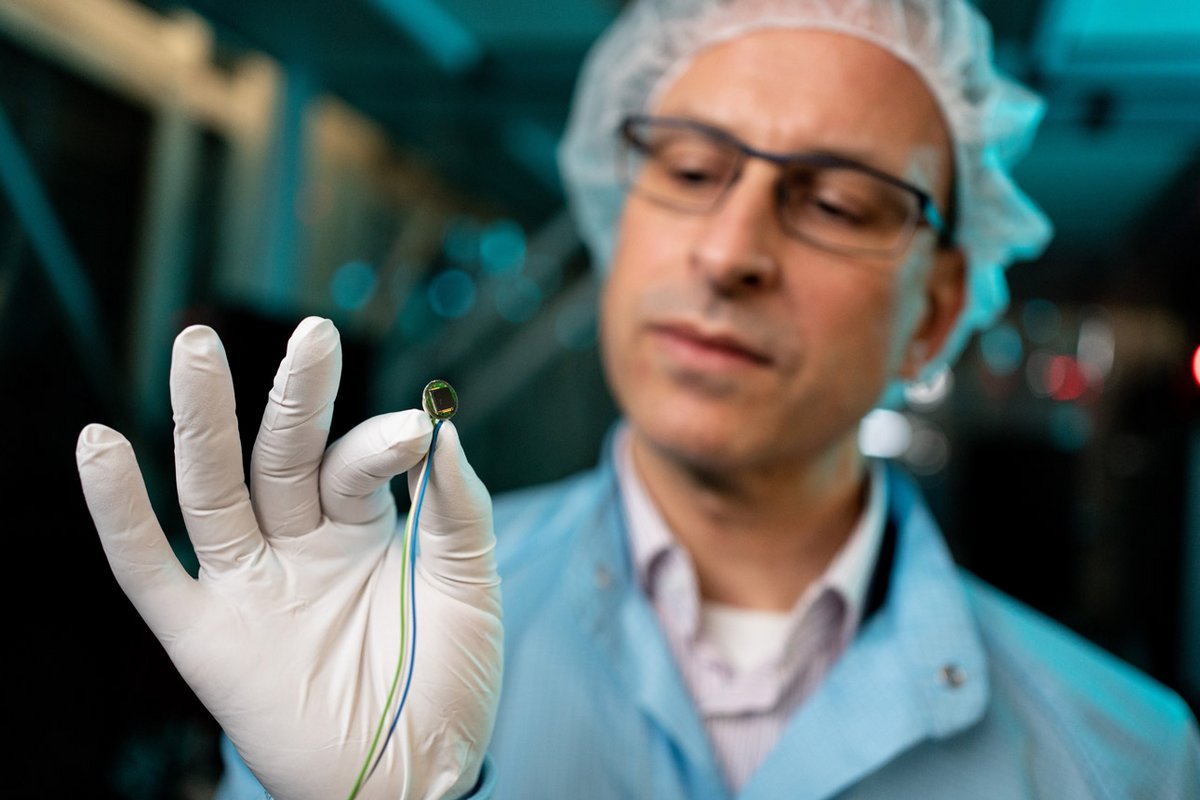20 million euros for research and development of Smart Health, Environmental Sensor Technology 4.0 and Industry 4.0
"We started as iCampµs Cottbus to build bridges to the regional economy with our research and development. In the meantime, we have found suitable SMEs in Lusatia for our projects. I am pleased that we are now starting this second phase with eleven companies - we even had 44 letters of intent. This is a great success for us and at the same time an incentive to live this transfer", explains project leader Prof. Dr. Harald Schenk from the Fraunhofer Institute for Photonic Microsystems IPMS and the BTU Cottbus-Senftenberg. Other project partners include the Fraunhofer Institute for Reliability and Microintegration IZM, the Ferdinand-Braun-Institut gGmbH, Leibniz Institute for Highest Frequency Technology (FBH), the Leibniz Institute for Innovative Microelectronics (IHP) and Thiem-Research GmbH.
In the Innovation Campus Electronics and Microsensors (iCampµs Cottbus), five non-university research institutes together with BTU Cottbus-Senftenberg are researching a broad technical range in the fields of microsensors and digitization, especially for small and medium-sized enterprises (SMEs). For the ceremonial start of phase 2, a virtual kick-off event took place on February 10, 2022.
Jointly developed - contactless medical radar
The medical radar developed in Cottbus stands as a vivid example of the joint collaboration. The 10cm x 10cm radar is able to detect not only the respiratory function of test persons but also other vital parameters such as heart sounds. The biggest advantage is that all this works contact-free. This opens up many possible applications for monitoring patients in both stationary and mobile medical care environments. In the meantime, this work package is managed by Thiem-Research GmbH (TRS), the subsidiary of the Carl-Thiem-Klinikum in Cottbus, which is to be further developed into the Innovation Center University Medicine Cottbus in the course of the structural change. The radar has a modular structure, so that the antenna used is designed and developed by IZM, the signal analysis takes place at BTU, the chip used is supplied by IHP and the linear receiver is provided by FBH. Each partner thus contributes to the success of the overall system. TRS ensures with the clinical integration and the ethics vote that electronics can also become a real medical device.
Project background
In its final report, the "Growth, Structural Change and Employment" commission of the previous German government emphasized the extraordinarily high importance of innovative strength for the economic and, indirectly, social development of a region. Particular importance is attached to "cooperation between business and science and universities as well as university and non-university research institutions". Funds invested in such cooperation generate necessary innovations and have a significant impact on increasing the gross domestic product. Funding for the iCampµs Cottbus project is provided under the German government's 2021-2024 framework program "Microelectronics. Trustworthy and Sustainable. For Germany and Europe." with funds from the Structural Strengthening of Coal Regions Act. In the first phase of iCampµs from 2019 to 2021, the BMBF has supported the five consortium partners with 7.5 million euros from the emergency program to implement the recommendations of the Commission "Growth, Structural Change and Employment." The second phase is now building on the research results achieved here, in which the results will be further developed for commercial exploitation. The project "Innovation Campus Electronics and Microsensorics Cottbus" aims to accelerate the transfer of knowledge and findings to industry. At the BTU Cottbus-Senftenberg, a regional focal point with national appeal is to be created in the field of application-oriented electronics and microsensorics. Demonstrators or prototypes for SMEs can be developed, ranging from the creation of individual solutions to small-series production capable of handling large numbers of units. Due to the broad competences of the six partners, technical solutions from the fields of optics and photonics, ultrahigh frequency technology, MEMS technology and application-oriented AI evaluation can be offered.
Contact
T +49 (0) 351 8823-154
harald.schenk(at)ipms.fraunhofer.de

